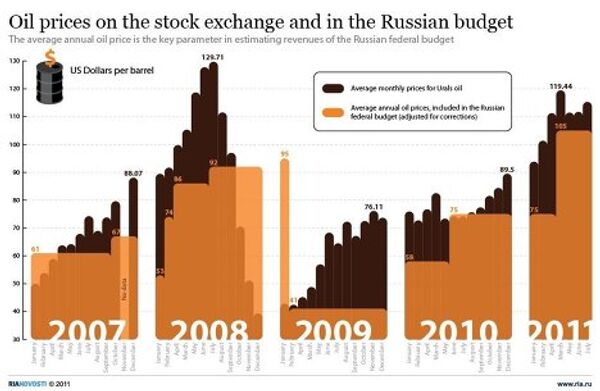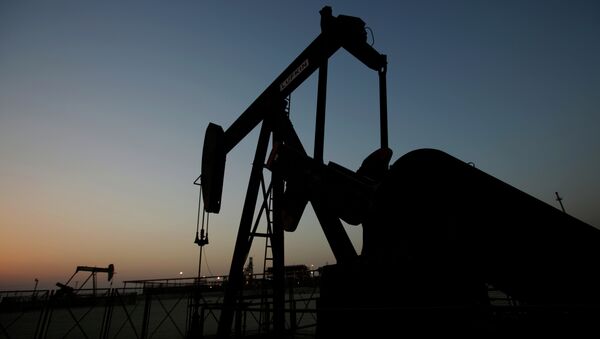"With the fall of the average price for oil from $100 to $50 per barrel in 2015, the budget revenues just from oil taxes could decrease by 2.1 trillion rubles [$31 billion] according to our estimates, while a more serious fall in price, to an average of $40 [per barrel] for the year, could lead to a budget revenue decline of 3.1 trillion rubles [$46 billion]," Trunin wrote in an article published in the Russian RBK daily newspaper on Thursday.
Trunin explained that the taxation of the oil industry in Russia is arranged in such a way that when prices are high, the bulk of the extra revenue from the oil industry goes to the budget, so when prices drop it is the budget that gets affected the most.
"As paradoxical as it may sound, it is this feature of the modern Russian tax system…that significantly mitigates the negative effect of falling [oil] prices on the industry," Trunin wrote.
On Tuesday, head of the Bank of Russia, Elvira Nabiullina, told reporters that Russia could lose up to $160 billion in oil exports annually if oil prices fall to $45 a barrel.
The Russian economy has been suffering the negative effects of falling oil prices, exacerbated by the Organization of the Petroleum Exporting Countries' (OPEC) November decision to maintain their production quotas.
Since June 2014, oil prices have dropped by more than 40 percent due to heavy oversupply in the market.




